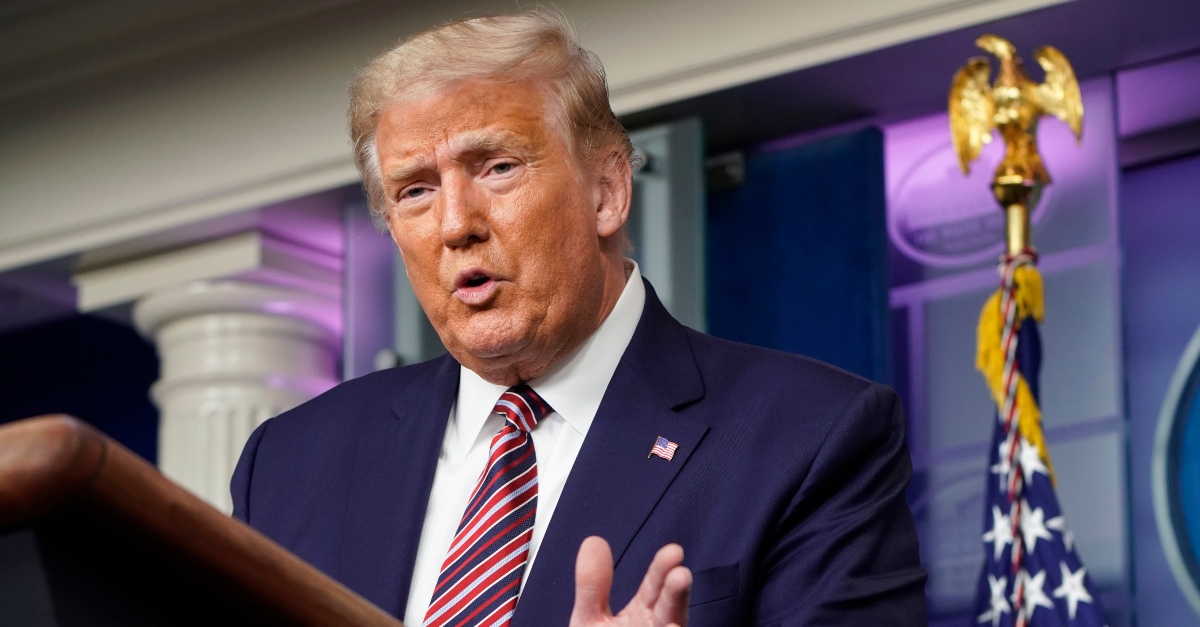
Donald Trump
Wisconsin Gov. Tony Evers on Wednesday asked a federal judge to order former President Donald Trump to reimburse the city for attorneys’ fees and court costs associated with his unsuccessful attempts to overturn the state’s 2020 election results through “frivolous” legal action.
The motion was filed in the U.S. District Court for the Eastern District of Wisconsin by attorneys for the Democratic governor. They said that Trump’s claims were “bereft of legal or factual basis,” but the state still had no choice but to spend taxpayer dollars to defend against the “scattershot litigation tactics” employed by Trump’s legal team. The state is now seeking to recoup $145,174.90 in legal expenditures associated with the case.
“From this case’s inception through the staggeringly expedited subsequent proceedings, there is no doubt that Trump and his attorneys brought and litigated this lawsuit in bad faith,” Evers’s brief stated. “Unconscionably, they did so for the purpose of sowing doubt about the legitimacy of the 2020 presidential election, with a goal of disenfranchising nearly 3.3 million Wisconsin voters in order to secure the presidency contrary to majority will. This Court has both statutory and inherent authority to make the State whole for attorneys’ fees necessitated by this frivolous suit and to issue sanctions, for which Trump and his attorneys should be jointly and severally liable, to dissuade future candidates and attorneys from engaging in such reckless abuses of the judicial system.”
Trump’s attorneys initially filed the suit in early December seeking an injunction to prevent the state from certifying its election results and “remanding” the case to the Wisconsin legislature. Ten days later, U.S. District Judge Brett Ludwig, a Trump appointee, dismissed the “extraordinary case” on the merits, repeatedly italicizing the word for emphasis.
In tossing the case, Ludwig wrote that Trump “asks that the Rule of Law be followed.”
“It has been,” the judge said.
The ruling was appealed to the U.S. Court of Appeals for the Seventh Circuit, where an all-Republican three-judge panel unanimously affirmed Ludwig’s ruling — essentially confirming that Wisconsin’s elections had been conducted in accordance with the law and that Trump waited until after Evers had certified the state election results to even file his initial complaint.
“We agree that Wisconsin lawfully appointed its electors in the manner directed by its Legislature and add that the President’s claim also fails because of the unreasonable delay that accompanied the challenges the President now wishes to advance against Wisconsin’s election procedures,” the opinion stated. “On the merits, the district court was right to enter judgment for the defendants. We reach this conclusion in no small part because of the President’s delay in bringing the challenges to Wisconsin law that provide the foundation for the alleged constitutional violation. Even apart from the delay, the claims fail under the Electors Clause.”
“We deny the claims,” William Bock, one of the lawyers who represented Trump in the case told Reuters. “They’re attacking in the pleadings my motives and the motives of my partners, of which they know nothing. The statements made about our motives were absolutely false.”
Bock said he intends to respond to the motion within the allotted 21 days.
Read the full brief in support of Evers’s motion below.
Gov. Evers Wisc Motion by Law&Crime on Scribd
[image via Joshua Roberts/Getty Images]
Have a tip we should know? [email protected]